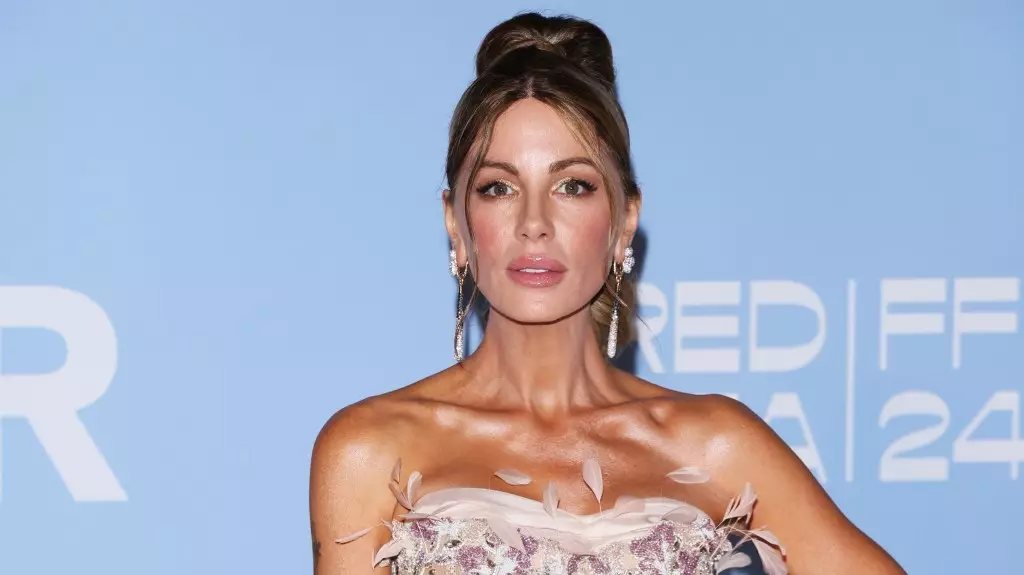In a powerful Instagram video, actress Kate Beckinsale shed light on her painful experiences with systemic sexism in Hollywood, igniting critical conversations around an ongoing issue that disproportionately affects women in the entertainment industry. Her reflections came to the forefront following the recent Blake Lively and Justin Baldoni scandal, which not only reignited debates about misogyny but also amplified the urgency for a cultural overhaul in showbiz. Beckinsale’s nearly five-minute video serves as both a cathartic release and a rallying cry for recognizing the persistent injustices women face on set.
Beckinsale stressed that her motive for sharing her story was not to pass judgment on Lively or Baldoni but to expose the hidden mechanisms that silence women who have the courage to voice their experiences of assault or harassment. Her anecdotes offer a glimpse into a harsh reality where women’s allegations are often met with disdain or disbelief, thus perpetuating a toxic environment that nurtures misogyny and favoritism.
The actress didn’t hold back as she recounted her own tumultuous journeys. One harrowing account detailed an assault she endured at the tender age of 18 while on set, a trauma that would echo through her career. Following the incident, Beckinsale described being met with disbelief by her female colleagues, illustrating the sometimes-unseen rifts that exist among women in the industry. She recounted distressing experiences that included being forced to participate in a photoshoot just a day after suffering a miscarriage. Such expectations betray an indifference to women’s personal health and emotional well-being, reinforcing a troubling narrative that beauty and professionalism supersede personal tragedy.
Moreover, Beckinsale detailed instances where her concerns about male co-stars, including those exhibiting irresponsible behavior on set, led to further victimization. Instead of receiving support, she described harsh reactions, name-calling, and the feeling of being ostracized. Her revelations concerning the relentless scrutiny of her body and weight, which even extended to losing her menstrual cycle due to strict dieting and exercise plans, offer stark evidence of the industry’s brutal standards for feminine beauty.
What Beckinsale described was not an isolated phenomenon but rather indicative of a pervasive culture that preys on women’s vulnerability. Her mention of unsafe stunt situations illuminates a disconcerting reality in which women are often subjected to harmful conditions for the sake of spectacle. The film industry, as she articulates, has a long-standing problem with dismissing women’s voices—especially when they challenge the status quo or threaten male dominance.
The phrase “gaslighting” was particularly poignant in her narrative, showcasing how women who dare to speak out are commonly manipulated into falling silent, left drained by blame and social exclusion. This cycle is so deeply ingrained that it leaves countless women feeling isolated and powerless, with little recourse for support or acknowledgment. Beckinsale’s emotional recounting reveals the significant mental toll such systemic sexism takes on women, fostering an environment of fear that further ensnares future generations of female talent.
Despite acknowledging the existence of powerful figures like Harvey Weinstein who are notorious for enforcing silence through intimidation, Beckinsale’s experience serves as a reminder that the problem transcends any one person or scandal. The actress declared that this situation is “ongoing,” underlining the illusion that Hollywood has evolved past its former exploits. The sobering reality is that women’s struggles within the industry are often minimized or swept under the rug, leaving a dismal landscape for change.
The transformation Beckinsale calls for involves more than just acknowledgment; it requires a cultural reorientation around how women are treated and regarded in Hollywood. Ending systemic sexism necessitates a collective commitment from both men and women in the industry to advocate for accountability, support, and respect.
As the conversation continues to unfold, it is crucial that we amplify voices like Beckinsale’s, recognizing not only the pain intertwined with their stories but also the call to action they embody. Only through facing these uncomfortable truths can we hope to initiate real change in an industry that has long been resistant to it.

Leave a Reply